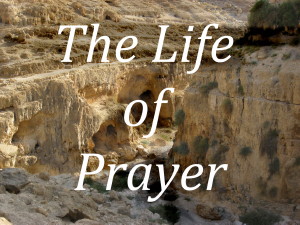February 2018: Olive Tree

Volume II/Issue 22/February 2018


From The Editorial Desk:
Dear Readers,
Well Lent is upon us! Its one of the most joyous times on the Church calendar!
I am guessing that you think I am crazy. But the fact is we should be going through lent with a smile on our faces. At least that is what Jesus said to do.
"And when you fast, be not as the hypocrites, sad. For they disfigure their faces, that they may appear unto men to fast. Amen I say to you, they have received their reward. But thou, when thou fastest anoint thy head, and wash thy face; That thou appear not to men to fast, but to thy Father who is in secret: and thy Father who seeth in secret, will repay thee." (Matthew 6:16-18)
In simpler terms, " When you fast, don’t make yourselves look sad like the hypocrites. They put a look of suffering on their faces so that people will see they are fasting. The truth is, that’s all the reward they will get. 17 So when you fast, wash your face and make yourself look nice. 18 Then no one will know you are fasting, except your Father, who is with you even in private. He can see what is done in private, and he will reward you."
Now that we got that out of the way. I wanted to give you some Basic purposes for fasting:
- Fasting to gain spiritual alertness to overcome temptation
Jesus Christ was led to to fast forty days-Matthew 4:2
- Fasting to seek God's will in a specific matter
The Israelites fasted to determine direction in battle-Judges 20:26
Paul and Barnabas prayed with fasting before ordaining Priest-Acts 14:23
- Fasting in repentance for sin
The Israelites fasted and repented and put away false gods- I Samuels 7:6
David fasted and repented of his sins.-II Samuel 12:16;21-23
Ahab fasted and repented after causing Naboth's death-I King 21:27
Hearing God's word Israel fasted, confessing their sins-Nehemiah 9:1-3
Daniel fasted and repented for himself and the people for not having walked in the laws of the Lord. and because they didn't, God's chastisement was to come-Daniel 9:3
Joel called for a fast because of the Lords chastening-Joel 1:14,2:12 and 15
The people of Nineveh repented in fasting-Jonah 3:5
- Fasting for concern for the work of the Church
Nehemiah fasted over the condition of Jerusalem-Nehemiah 1:4
Abstinance in marriage allowed for times of prayer and fasting-I Corinthians 7:5
- Fasting as a prerequisite for spiritual authority
Jesus Christ identified demons which could only be cast out by prayer and fasting-Matthew 17:21; Mark 9:29
- Fasting for deliverance or protection
Jehoshaphat and all Judah fasted for deliverance in battle-II Chronciles 20:3
Ezra and the people fasted for the Lord's deliverance-Ezra 8:21-23
The Jews fasted and grieved after King Ahassuerus' decree-Esther 4:13,16
God delivered the Jews from Haman's plot-they fasted and rejoiced-Esther 9:31
People fasting for repentance and deliverance but God will not hear-Jeremiah 14:12
- Fasting to humble oneself before God
David humbled himself before God-Psalms 69:10,11,13
- Fasting as a part of Worship
Anna served God through prayers and fastings daily-Luke 2:37
The early church was fasting and worshipping God-Acts 13:2,3
Cornelius, feared God, gave alms, prayed, and fasted-Acts 10:2,30
- Fasting when in deep sorrow
Sorrow over the death of Saul and his sons-I Samuel 31:13, II Samuel 1:11,12
David grieved over the life of his child-II Samuel 12:16;21-23
David prayed and fasted for his enemies' troubles- Psalms 35:13
King Darius fasted when Daniel was in the lions' den-Daniel 6:18
In conclusion:
Fast for the purpose of great effectiveness in discerning and achieving God's purposes (Isaiah 58:6). Do it secretly and God will reward you openly (Matthew 6:16-18).
And remember: Don't fast to achieve selfish purposes-(Isaiah 58:3-5). and don't fast to impress others with your spirituality-(Zecharaiah 7:5; Matthew 6:16-18; Luke 18:12).
God bless

Saint Andrew Corsini

The Breviary tells us: “This Andrew was born at Florence, of the noble family of Corsini. His birth was a special answer to prayer, and his parents vowed him to the Blessed Virgin.” Do we ever stop to think of praying for our children and consecrating to Almighty God? Newly married people should pray for their future children and ask God for the grace and guidance to be good parents. We should anticipate the graces we will need in the future. There is a custom for boys and girls to pray for their future spouse, while they are yet children.
Let us return to the Breviary: “God foreshewed even before his birth what he was to be. While his mother was great with child she dreamt that she brought forth a wolf, which ran to the Carmelite Church and was changed into a lamb as soon as it reached the porch.” God sometimes chooses people for special tasks He has in mind. The Prophet Jeremias writes: “And the word of the Lord came to me, saying: Before I formed thee in the bowels of thy mother, I knew thee: and before thou camest forth out of the womb, I sanctified thee, and made thee a prophet unto the nations.” (Jeremias 1:4-5) God has a plan for all of us and has had us in His mind since creation.
Parents, let us consider this from the Breviary: “The boy was brought up in godliness and learning becoming his rank, but turned to bad courses; whereupon his mother often rebuked him.” Parents have a solemn duty to bring their children up properly. And this means that parents must be examples of holiness and virtue. The idea of: “Don't do as I do, do as I say do,” will not work. Even when parents do all they should, a child may go wrong. However, bad parents usually raise worse children, as Scripture says: “Praise not any man before death, for a man is known by his children.” (Ecclesiasticus 11:30) And neglectful parents are responsible for the sins of their children, their grand children, etc. If by our bad living we scandalize others and lead them into sin, we bear some responsibility for that sin. It is like the domino effect. Our sin by scandal begets another sin, which by scandal begets another.
Saint Andrew came out well in the end, as the Breviary tells us: “Nevertheless, when he knew how his parents had vowed him to the Maiden Mother of God, the love of God touched his heart, and the vision of his mother moving him, he betook himself to the Institute of the Carmelites. In that place the devil exercised him with many and divers temptations, but could not break him off from his determination to profess as a friar.”
There is much to learn from the beginning of his life. Saint John Vianney tells us that not all of the saints began well, but they all ended well. Saint Augustine lived badly for many years before he finally converted. Our saint as well was trained well, then went the wrong way, but through the grace of God was brought to repentance. If we have lived badly, let us follow his example and return to Almighty God.

February Gloom and Glory
They say that February is the gloomiest month of the year. Unfortunately, unless you live in someplace tropical all year around . . . like Tahiti or Southern California . . . . you have to deal with the ice and snow and frigid temperatures of the season. Most people, I would guess, don't like February very much. At least in November and December we have the holidays to look forward to. That takes our minds off of the cold and ice, doesn't it? But in February, it would seem that we don't have anything to look forward to . . . . just more ice . . . more snow . . . cold temperatures . . . and darkness. Not much to do either because you don't feel like going out in all that mess. This is why a lot of folks say they don't like February. It's just plain gloomy.
In a similar vein, I guess you could say, people also don't like the holy season of Lent. It's gloomy. It's depressing. People focus on what they give up during Lent . . . . such as giving up chocolate, for example. They focus on the penitential aspect of Lent. In other words, dealing with being sorry for our sins. Nobody enjoys admitting their faults, do they? I know I don't. This is probably why we get in the habit of pointing out the faults of others because it keeps us occupied so that we don't point out our own faults. Let's face it, if I'm busy focusing on what others have done wrong, that probably means I am less likely to focus on what I have done wrong.
And yet we know that life itself is not perfect. As the old song goes, "I never promised you a rose garden." Life is not filled solely with roses and unicorns and pretty rainbows. Life can be difficult at times. We can work our tails off to pay bills, for example, and then just as we finish paying the bills off, something in the house breaks and needs to be replaced. The car breaks down. Doctor's bills come due because we are sick. We can all come up with our own examples, can't we? And if we are honest, life can be downright depressing at times if we focus solely on the negative things that life throws at us.
But as Christians we are called to focus on the positive. We are called to focus on the blessings that the Good Lord has provided us with. "For the kingdom of God is not meat and drink; but righteousness, and peace, and joy in the Holy Ghost." (Romans 14:17) Yes, to a certain degree, we are called to be penitential during Lent . . . to focus on our sins, the things we have done wrong . . . . but we do that in order to "get right" with God. During Lent, we are encouraged to give up the things of the world so that we can focus more on the things of God. Also, it helps us to see first hand that Our Blessed Saviour gave up the glories of Heaven in order to walk among us as a human being. He worked with His hands . . . He was tired . . . He was hungry . . . He traded in His throne in Heaven so that He could be with us, . . . spend time with us, . . . . preach to us, . . . . tell the world of His Heavenly Father.
"But I am a worm, and no man; A reproach of men, and despised of the people. All they that see me laugh me to scorn: They shoot out the lip, they shake the head, saying, He trusted on the Lord that he would deliver him" (Psalm 22:6-8)
Our Lord humbled Himself so that ultimately we could share in His glory. This is the beauty of His suffering. This is the true meaning of His Cross. In carrying that blessed Cross, Our Lord paid the price . . . for you . . . for me. He paid a price that we could never have paid ourselves. This is the true meaning of Lent. Lent is meant to be a time to prepare ourselves for the glory of Easter. It is a time of preparation. It is a time to set aside both the cares and riches of the world so that we can focus on the greatness of Our God.
"Which hope we have as an anchor of the soul, both sure and steadfast, and which entereth into that within the veil." (Hebrews 6:19)
"Blessed is the man that trusteth in the Lord, and whose hope the Lord is." (Jeremiah 17:7)
We are indeed a people of hope. We are all called to keep our eyes firmly fixed on the prize. And of course that prize is life eternal spent with Our Blessed Saviour in His glory. So often we are sidetracked by either the cares or riches of the world. Lent is a time set aside by the Church so that we can step back, take a deep breath, and get our priorities straight. Yes, life can be gloomy at times. Yes, cares of the world can be overwhelming at times. Yet, as Christians we know that God never leaves us. We know that God sent His only Son into the world to save us. For this we should glory in Our Blessed Saviour and all He has done for us.

The Funny Pharmacy
Proverbs 17:22
A joyful mind maketh age flourishing: a sorrowful spirit drieth up the bones.
The Sunday School teacher was describing that when Lot's wife looked back at Sodom she turned into a pillar of salt, when Bobby interrupted. "My mommy looked back once while she was driving," he announced, "and she turned into a telephone pole."
The church was badly in need of a coat of paint. So the pastor decided he'd do the job himself. But all he had was one bucket of paint. So he got a bunch of buckets and some water, and he thinned the paint enough to cover the entire church. Then he spent all day painting. That night it rained—very hard—and washed all the paint off. The pastor was quite discouraged and asked God, 'Why...why God, did you let it rain and wash off all my hard work?'
To which God thundered his reply, 'Repaint! Repaint! And thin no more!'



Since the occupants of the papal chair since Pius XII have been non Popes, the Council an heretical council, therefore there has been no legitimate framework for the election of a new Pope all the years subsequent to John's election?

The Pope Speaks: February 2018
Concerning the Lenten Fast and its Proper Spirit
February 14, 2018 is Ash Wednesday, the beginning of Lent.
Lent is a spiritual Spring cleaning. It is a time to check up on how well we are performing our duties. To do this, we should make a list of our duties and examine our conscience on how well we are performing them. From this we make resolutions to fulfill our duties better. We then choose those mortifications that are necessary to fulfill these resolutions.
This brings us to the main point of mortification. The purpose of mortification is to remove all obstacles to prayer and fulfilling our duties. And so our mortifications should be chosen with these two goals in mind.
Let us cite some examples. In order to spend more quality time with his wife and children a man might resolve to give up television after dinner, as well as not surfing the net, etc. In order to spend more time at prayer, people might give up the same things before going to work in the morning, spending time with God rather than with acquiring useless information from the television or internet. And yes, much of what is broadcast is basically about useless to helping us save our souls and perform our duties.
“Penance for the Christian is not satisfied by withdrawing from sin, by detesting a past life badly lived, or by the sacramental confession of these same sins. Rather, penance also demands that we satisfy divine justice with fasting, almsgiving, prayer and other works of the spiritual life.” (Pope Clement XIII, Appente Sacro)
There are seven kinds of penance outlined here:
The first penance is necessary, withdrawing from sin. Sin is the only real evil in the world. It is absolutely necessary to remove all mortal sin. We should also remove all deliberate sins from our life, because the only thing deliberate venial sin lacks that mortal sin has is seriousness of matter. We should never deliberately will to sin, no matter how trivial the matter may seem. Deliberately sinning is also deliberately turning away from God.
Secondly we have all lived our lives badly. Two practices will help us see this. The first is to take a week and track how we use our time. How many of us spend a whole day, 24 hours, in front of some sort of screen. And how little time do we spend in prayer? The other is tracking how we spend our money for a month. Oh, how we pamper ourselves. Buying a special coffee daily costs over a hundred dollars a month. Couldn't that money be spent more wisely? How much do we spend on ourselves and how little do we give to Almighty God and His work? How we spend our time and money shows what we truly hold to be important.
Thirdly Pope Clement includes Sacramental Penance as a penance we all need to do. We need to come clean before God and the priest He has sent to us through His Church and 'get real'. We need to admit that we are our a sinner and admit what are sins actually are.
We must satisfy Divine Justice by fasting. And this must go beyond the minimums required by Ecclesiastical Law.
(A brochure explicating the current laws in regard to the Lenten Fast is available for download here.)
We shall consider this more deeply in a moment.
Fifth we consider almsgiving, which is more than checkbook charity. It includes all of the spiritual and corporal works of mercy. The Catechism tells us: “The chief spiritual works of mercy are seven: To admonish the sinner, to instruct the ignorant, to counsel the doubtful, to comfort the sorrowful, to bear wrongs patiently, to forgive all injuries, and to pray for the living and the dead. … The chief corporal works of mercy are seven: To feed the hungry, to give drink to the thirsty, to clothe the naked, to ransom the captive, to harbor the harborless, to visit the sick, and to bury the dead.” Let us remember that almsgiving comes after we have tithed to the Church, which is an obligation binding under pain of sin.
Sixthly we need to pray. It is interesting that this Pope enumerated prayer as a penance. Prayer takes us away from something else, because it takes time to make serious prayer. Lent is a good time to set aside an hour a day for prayer, and to take a moment to recollect our self at other times, rather than distract ourselves.
And finally we need to perform the other works of the spiritual life, which include spiritual reading, reading the lives of the saints, pilgrimages, etc. Like prayer, these also take time and take us away from our own pleasures and thus are a necessary mortification and penance.
The World Takes No Heed of Lent
These words come from the public admonitions of the Blessed Virgin Mary at Lourdes. And how much more so is this today? When Mary appeared at LaSalette, Friday and Saturday were days of complete abstinence. And the Lenten fast was stricter. Now we are permitted a full meal with meat, except on Fridays and Ash Wednesdays, when meat is forbidden. We are permitted a small repast in the morning and evening in order to maintain strength, which must be meatless. We are allowed to exchange the noon meal with the evening repast, thus eating our main meal in the evening and taking a small repast around noon time. The two repasts, when added together should not equal a full meal.
The big problem of today is gluttony and the Fathers of the Church tell us we must overcome gluttony before we can overcome lust and the other vices. If you have a problem with vice, consider its may be growing out of gluttony, which may be feeding it.
Saint Paul said: “For many walk, of whom I have told you often (and now tell you weeping), that they are enemies of the cross of Christ; Whose end is destruction; whose God is their belly; and whose glory is in their shame; who mind earthly things.” (Philippians 3:18-19)
Is our belly our god? Do we live to eat or do we eat to live?
We should eat in order to live, not live in order to gratify our self in eating.
There are four ways of being gluttonous:
-
Eating when there is no need, eating between meals, and for no other reason than that of indulging our greed.
-
Seeking delicacies or daintily prepared meats, the more to enjoy their relish.
-
Eating with avidity, with greed, after the manner of certain animals.
-
Going beyond their appetite or need, gorging oneself with food or drink with danger to health.
Let us consider these four ways:
We eat in order to maintain our strength and to live. Eating for pleasure alone has been condemned as sinful by the Church. How often should we eat? Saint Thomas Aquinas asks if three in the afternoon is the appropriate time for the faster's only meal. Because of our weakness the Church has allowed food to be consumed twice more. Let us go to a catechism published a century ago, which describes fasting as: “In taking only one meal a day, to which a refection and a collation may be added.” The main meal had been moved to noon, but it is permitted to move it to the evening and move the collation back to noon time. The refection is a light breakfast to maintain strength. And the catechism says: “The collation is a slight refreshment which we are permitted to take towards evening, amount to about one fourth of an ordinary meal.” The current law is easier than this. We should live in the spirit of fasting, enduring some discomfort as long as it is not injurious to our health.
We eat very fancy foods, when we should eat plainer foods, especially on fast days. Let us consider the delicacies that we take for granted that were not available a few decades ago. There is no problem in enjoying the food we eat to maintain our health.
Today many have a bad habit of eating rapidly, when we should sit down at the table and eat slowly and moderately. We recall training a child, who had the habit of eating too fast. We made him set his fork down between bites to teach him to slow down.
Saint Alphonsus says: “It is also a sin willfully to produce any serious illness, by eating to excess, or by eating food injurious to health; for we are bound to preserve our life, and to avoid all danger of death.” And Saint John Vianney, holy Cure of Ars said. said: “intemperance and debauchery are the support of doctors.” How many of us have health problems caused by what we eat or at least made worse by it. Let your food be your medicine. We should choose foods that will strengthen our body, not weaken it.
Today many things are sold to us as 'food', which are actually dangerous and may even be destroying our body and mind. Do a little research. When we eat a proper diet, we will find that it takes less to support our life.
Let us resolve to make this the best Lent in our lives. Let us ask God to give us the grace to place Him first and foremost in our life. Let us then work with the grace He sends us to change our lives for the better.
Pope Michael


Dear soul, it is a joy to write to you again. This month, we are going to continue with what we began the last time I wrote. Do you remember? We were discussing the life of prayer and looking some of the "Chapters" on prayer by Evagrius of Pontus. I hope that you have found the lessons in the Chapters to be helpful. This month, we are going to move on to the next few Chapters to see what awaits us there. I think you'll find the information to be useful to you, especially as we are now entering into the season of Lent.
More than at any other time of the year, during Lent we ought to take an inventory of our lives, of our selves, of that which we do, of that which we have not done, of the opportunities for grace, and for charity, and for works of mercy. We must take an honest look at the occasions of spiritual growth that we have accepted, and even those which we have not accepted.
Most fundamentally, we must make an inventory of our own interior life, our life of prayer.
I think here we would do well just to refresh our memories very quickly on what we learned the last time from Evagrius
First we learned that if we are to pray, we must offer prayer according to the proper proportions, which is nothing less than being genuine in our prayer, and to act within the Church and under the guidance of spiritual authority. This is only reasonable, dear soul, for if we truly wish to embark upon the life of prayer, our prayer must be genuine. We must not place obstacles in its way, and we must offer our prayer according to the mind of the immaculate bride of Christ, the Church.
Second we learned that in our life of prayer we must have balance. This balance comes as a consequence of our prayer being genuine and our prayer being guided and our work being directed along the safe paths shown to us by trusted spiritual guides. Should we discover that we have lost our balance, let us look to see what we lack - either in being genuine with our prayer, or in being guided by sound spiritual guide.
Third we learned that the life of prayer is continual. It is not an intermittant thing, turned off and on at will, but it is rather a constant state of soul after which we are to strive.
To be sure, this is not a mater simply of saying prayers continually. Even though I always hasten to point out, dear soul, that the saying of prayers in an indispensable part of the greater life of prayer, it is by no means the only part by. But it is indispensible. Give no ear to those who would in any way reduce the imporance of the simple and heartfelt saying of prayers, espeically those prayers which are part of the liturgial life of the Church. It is by these prayers that the immaculate bride of Christ renders worship unto her divine Spouse. When we participate in the Liturgy, and when we lend our mouths to give voice to these prayers, we participate so intimately in this pure and right glorification of God!
But even that is not enough to constitute the life of prayer. as our Lord himself within the scriptures tells us: "Ye hypocrites, well hath Isaias prophesied of you, saying: This people honoureth me with their lips: but their heart is far from me." - Gospel according to Saint Matthew 15:7-8.
No, it is not enough simply to give praise with the mouth if the heart is far from Him. We must awaken our hearts, and have them illumined and vivified by the light and power of divine grace.
That is what we will be investigating this month, dear soul, in way that is fundamental and even elementary, but which I know will serve you well.
I left you last time last month with the question: "What state of soul is required?" in regard to the swift attaining of genuineness, balance, and a soul which is continual in prayer.
This month we have the first answers. Let us read the next "Chapter" from Evagrius:
4. When Moses tried to draw near to the burning bush he was forbidden to approach until he had loosed his sandals from his feet (Exodus 3:5). If, then, you wish to behold and commune with Him who is beyond sense-perception and beyond concept, you must free yourself from every impassioned thought.
This speaks directly to us as we're about to enter into the season of the Great Lent, dear soul. If we are to truly live a life of prayer that is genuine, balanced, and continual, we must necessarily free ourselves from every impassioned thought as Evagrius assures us.
This is so because impassioned thoughts will cause us to seek after our own disordered desires and lack genuineness in our prayer. We will seek our own selfish ends rather than seek God Himself. Impassioned thoughts likewise are deadly to balance, for they allow no other consideration to take precedence to them, including the considerations of prayer. Finally, impassioned thoughts will seek to interrupt our state of continual prayer by constantly calling the attention and the affection of our hearts to themselves, and away from communication with God.
But what does this mean, exactly: to free ourselves from every impassioned thought? Well, we are given an illustration in the form of Moses. We see that when Moses tried to draw near the burning bush, he was forbidden to approach until he had loosened the sandals from his feet.
You will find two considerations to have there, dear soul. First, the sandals indicate the cares and the works of the world. For as we walk along in the world, the sandals bring along a lot of what we've walked through, the dust, dirt, grime, mud, whatever you can imagine. Any dirt clings to the bottom of the sandals. The cares of the world, in other words. Those things which we've gone through
Second, sandals are protection to us as we walk about. We wear the sandals so that we do not cut the bottoms of our feet on things. So that we can walk across the hot sands of the desert, or across sharp stones. They help give us purchase if we are climbing a steep path. They keep us from being stung, should we step on a bee, or even a scorpion. They are a protection to us.
But in order to truly approach God in the right spirit, we must put aside all pretense of self-protection. We must come to him in the state in which He has created us. We put aside our own shields. We put down our defenses. We must be willing to stand in our brokenness before our Creator. We must be willing to be seen as we are.
In the removal of the sandals, we see the illustration that we must set aside all that which is clinging to us from our daily journey within this fallen world, and we must also set aside our own worldly protections.
Let down your defenses, dear soul, so that you can truly come to Him! Thus it is that you free yourself from every impassioned thought, both those from without and also those from within. Those that would distract, or those that would impede.
5. First pray for the gift of tears, so that through sorrowing you may tame what is savage in your soul. And having confessed your transgressions to the Lord, you will obtain forgiveness from Him.
Have you ever noticed, dear soul, in a time of trial, in times of difficulty, in times of sorrow, how quickly all frivolity and levity is swept away? They become unimportant in times of sorrow, in those times in which we tend more to focus on that which is most important and most fundamental. We focus on ourselves, we focus on our relationships, we focus on family, and on each other. That's as it should be.
So also it is when we come before God, we must strip away all pretense, all frivolity, all pride, and pray to God that we may come to Him with the gift of tears. Not manufactured tears, and certainly not tears simply of emotion, dear soul. The gift of tears is something beyond. The gift of tears is truly a gift from God to the interior self, the noetic self. We will speak more on that self very soon.
Now the gift of tears is not always manifested in exterior, material tears, though it certainly often is. In this gift, we speak not merely of the tears of the eyes, but the sorrowing of the heart, the tears of the soul, which weep for the disfigurement within itself of the image of God, disfigured by sin.
For the heart seeks Him out, weeping over its own participation in this continual disfigurement. As a gift of God’s grace, its tears are a signification of the disfigurement of the soul being repaired. It is by the tears of the soul that our Lord washes clean the soul, and most wonderfully refashions it. These tears are both a fruit of the work of grace within the soul and the solvent which breaks asunder the chains of our own passions which keep us bound.
Pray for tears, dear soul, that it might be granted! But do not force yourself through impassioned, emotional feelings and thoughts to bring about such a thing, for this would be to counterfeit the gift of God. Never forget the necessity of genuineness in your prayer!
6. Pray with tears and all you ask will be heard. For the Lord rejoices greatly when you pray with tears.
Finally, dear soul, you see here that we are not speaking of impassioned thoughts or of emotions, but rather a state of the soul: The soul that is bringing forth the fruits of repentance in tears, within itself. This is the gift of tears of which the fathers speak.
For our Lord does not rejoice in our sorrowing or our weeping, nor does our Lord rejoice solely in our tears. Our Lord rejoices, rather, when we pray with tears. The fruit of grace is found in the tears of the soul, but the genuine and effectual gift is given when we pray.
For here, our purpose is not to achieve an emotional state, not to elicit a feeling, but to build a state of spiritual being. Prayer with tears is a state of spiritual operation which is granted to the sincere seeker. It is granted by our Lord, the only One Who can give this gift truly, for it is the action of reparation in the soul.
And that, dear soul, is the lesson that we should take with us this month. As we prepare ourselves to enter into Lent, let us remove our sandals, both to leave behind the cares and pollution of the world, and to set aside our defenses before Him. Let us stand before Him unprotected from all gifts that he may wish to give us, even the gift of tears. And then let us pray there, for all that we ask will be heard. The Lord rejoices greatly when one of His children trusts so completely and loves so totally that He can give them a gift so great as the gift of tears.
Let us remember this as we enter into Lent!


Good books to help make a good Lent!

This work commences with Septuagesima Sunday. Septuagesima Sunday Going out about the third hour He saw others standing in the market place idle. And He said to them: Go you also into my vineyard and I will give what shall be just. In these words we may notice four things. 1. The goodness of the Lord, going out, that is, for his people's salvation. For that Christ should go out to lead men into the vineyard of justice was indeed an act of infinite goodness. ... There is an instruction for every day from Septuagesima Sunday two and a half weeks before Ash Wednesday to Holy Saturday. This gives eight weeks of instructions or 56 instructions to sanctify this most holy season for the year, Septuagesima and Lent.
$11.95 Sale Price $10.99

Lenten Instructions from the Roman Breviary
The Roman Breviary is full of inspirational prayers and lessons. These lessons are compiled from the lessons of Matins. On Sundays and greater feasts Matins consists of three nocturns. Each nocturn consists of three psalms and three lessons. The first nocturn has lessons from Sacred Scripture. Since the Bible is readily available, this is omitted from this work. The second nocturn on the feast of saints gives their life story. It is these stories, which are most instructive. On Sundays, these lessons are an explanation either of the current Scripture or some other inspirational instruction and these are included here. The third nocturn is on the day's Gospel. The first lesson begins with a short quote from the Gospel of the day, followed by the beginning of the instruction. These are included here. On smaller feasts and ferial days, there is only one nocturn of nine psalms and three lessons. In Lent, these lessons are on the day's Gospel, while on other ferial days they are from Scripture. On minor feast days, the first two are from Scripture, the third on the day's feast. In Lent there are forty different Gospels read, and the lessons on these form the bulk of this work. The lessons in the Breviary come from the Fathers of the Church and are quite instructive. This work would serve as a good companion to Sunday Sermons of the Great Fathers, as it covers material not contained in this other excellent work. The Fathers of the Church bring out points we may not have considered in our meditations on the daily Gospels. We pray all find these instructions as fruitful as I have. We have included the instructions for the three Sundays prior to Ash Wednesday, Septuagesima, Sexagesima and Quinquagesima, as they form a remote preparation for the commemoration of the mysteries of our Redemption at the end of Holy Week.
$9.95 Sale $9.00

The Practice of the Presence of God: With the Maxims of Brother Lawrence
Brother Lawrence was a man of humble beginnings who discovered the greatest secret of living in the kingdom of God here on earth. It is the art of "practicing the presence of God in one single act that does not end. " He often stated that it is God who paints Himself in the depths of our soul. We must merely open our hearts to receive Him and His loving presence. For nearly 300 years this unparalleled classic has given both blessing and instruction to those who can be content with nothing less than knowing God in all His majesty and feeling His loving presence throughout each simple day.
$6.00

Instructions From the Saints on How to Preach
Four saints have given us sage advice on preaching. They all recommend a simple method that will bring about the conversion of sinners and strengthen the just in virtue. They advised shorter sermons that get to the point and teach virtue, than long drawn out sermons, which gain the applause of men, but do not touch the heart.
Saint Francis de Sales revived preaching after the Protestant Revolt. In his letter to a fellow bishop, he outlines the basics on how to preach profitably. Saint Francis de Sales says: “As to preparation, I am in favor of making it in the evening, and in the morning of meditating within oneself on what one wishes to say to others.”
Saint Vincent de Paul at the same time presented his Little Method, which is outlined below. He asked the question: “What would Jesus do?” long ago. He said: “Hold fast to the simplicity which you have found to be so successful in other missions. The spirit of the world, with which this district is saturated, can neither be fought not conquered save by the spirit of Jesus Christ.” He also said: “Mental prayer is the great book of the preacher.”
Saint John Eudes also gives some sage advice on preaching in his work on the priesthood. He says: “The end and purpose of this heavenly office is to form Christ in the hearts of the faithful that He may reign there; to dispel the darkness of hell and illumine the light of heaven in men's souls; to destroy sin and open the floodgates of grace; to destroy the tyranny of Satan on earth and reestablish the Kingdom of God.”
After the death of these three saints, God raised up Saint Alphonsus, whose advice caused some controversy, which he refuted. He followed Saints Francis de Sales and Vincent de Paul and their methods and ideas. Saint Alphonsus said: “It is related in the life of Saint Philip Neri that he commanded those who gave instructions to the people to speak on subjects that are useful and popular, and never enter into scholastic questions, or to seek after sublime conceptions.”
These works of the saints are presented without comment, so that the reader may form his own opinions. It is strongly recommended that you take notes as you go along and mark up this book, so you can find important points later. I pray that this work will help preachers to preach the Word of God, clearly and with profit to the faithful.
Paperback $14.99
Kindle $2.99


From the Monk's Kitchen
Lentil Vegetable Soup with Wild Rice
A satisfying and nutritious soup that can be served on days of fast and abstinence.
Minutes to Prepare: 15
Minutes to Cook: 45
Number of Servings: 4
Ingredients
3/4 cup lentils, sorted and rinsed
3/4 cup diced carrot
3/4 cup diced celery
3/4 cup chopped onion
1/4 cup wild rice
1/4 cup converted rice (like Uncle Ben's)
2 cloves garlic, minced
1 teaspoon dried oregano
1/4 teaspoon dried thyme
5 cups water
4 teaspoons vegetable bouillon seasoning
1 bay leaf
1 14-1/2 oz. can cut up tomatoes
1 tablespoon Worcestershire sauce
1 tablespoon apple cider vinegar
1/4 cup minced fresh parsley
2 tablespoons minced fresh basil, optional
V-8 or tomato juice or water, optional
Directions
Combine all ingredients on the list through the canned tomatoes in a large pot (do not add the Worcestershire sauce, vinegar, parsley or basil yet). Bring to a boil, then simmer until lentils and rice are tender (about 35-45 minutes). Remove the bay leaf. Scoop out about two cups of the soup and blend well in the blender. Return the blended soup to the pot. Now stir in the Worcestershire sauce, the apple cider vinegar, the fresh parsley (and the fresh basil if using). You should have about 8 cups of soup. If you don't have 8 cups, or if you prefer a thinner soup you can stir in some V-8, tomato juice, or water as you wish. Makes 4 servings, 2 cups each.
Number of Servings: 4


Video sermons and instructions: Oldies but goodies!
Sexagesima Sunday, 2012.
Quinquagesima Sunday, 2012.
First Sunday in Lent, 2012.


New! VIE Catholic Radio Network
We now have the VIE Catholic Radio Network online.
Is a 100% free internet radio station that depends on the gifts of its listeners. We don’t offer gimmicks or gadgets or promises of wealth and health… just all Catholic based radio, all the time.
It is through donations that The VIE Catholic radio Network can broadcast the Catholic faith to so many listeners around the world.
You can make a special financial contribution to help us at VIE Catholic Radio right now online. just go to the web site: VIEcatholicradio.com and under the donation tab you can make your online contribution or you can send checks or money orders to the address also given in the VIE Catholic Radio donation tab. We want to say thank you ahead of time for what you are able to give. As Matthew 10:8 says: "Freely have you received, freely give."
Listen to VIE Catholic Radio via your Android device with our new Android app! You can find it HERE at "Google Play".
The app is free of charge, although we have to pay a monthly fee for providing it.
We have had people from several countries who have listened and gave us some great feedback! So check it out at VIEcatholicradio.com.

Catechism Catch-Up
The Holy Spirit's Work in Creation - Article 7
According to the Scriptures, the Holy Spirit was also involved in creation.
In the beginning God created heaven, and earth. And the earth was void and empty, and darkness was upon the face of the deep; and the spirit of God moved over the waters.(Genesis 1:1–2)
St. Ambrose: The Spirit fittingly moved over the earth, destined to bear fruit because by the aid of the Spirit it held the seeds of new birth which were to germinate according to the words of the prophet: “Send forth thy Spirit and they shall be created and thou shalt renew the face of the earth.”
St. Ephrem The Syrian: The Holy Spirit warmed the waters with a kind of vital warmth, even bringing them to a boil through intense heat in order to make them fertile. It was appropriate here that the Spirit hovered in order for us to learn that the work of creation was held in common by the Spirit with the Father and the Son.
We have seen in a previous Catechism lesson that Jesus Christ, the Son of God and second person of the Trinity, was involved with God the Father in the creation of everything.
In the beginning was the Word, and the Word was with God, and the Word was God. The same was in the beginning with God. All things were made by him: and without him was made nothing that was made. (John 1:1–3).
Now, in Genesis 1:2, we see that the “Spirit of God” was also involved in creation.
The Hebrew word for “Spirit” is often translated as “wind” or “breath” in the Old Testament. The same word is found in Psalm 32:6, where we again catch a glimpse of the Spirit’s work in creation: “By the word of the Lord the heavens were established; and all the power of them by the spirit (in some translations breath) of his mouth: ”
The next verse of this psalm continues,”Gathering together the waters of the sea, as in a vessel; laying up the depths in storehouses. (Psalm 33:7). Certainly, this should remind us of how “the Spirit of God was moving over the waters” in Genesis 1:2.
If we look closer at the word “moving” we find that it conveys the idea of a bird, hovering and brooding over her eggs, caring for the new lives. The same Hebrew word is used to describe how “As the eagle enticing her young to fly, and hovering over them, he spread his wings, and hath taken him and carried him on his shoulders.” (Deuteronomy 32:11.)
What a beautiful picture of God preparing to bring life into the world through His Spirit! God designed all of creation for life. “His Spirit hath adorned the heavens, ” (Job 26:13), and they were designed with us in mind:
For thus saith the Lord that created the heavens, God himself that formed the earth, and made it, the very maker thereof: he did not create it in vain: he formed it to be inhabited. (Isaiah 45:18).
We should also note that Scripture describes a similar “hovering”, if you please, of the Holy Spirit in one of the greatest miracles of all time—the miraculous conception of Jesus Christ: “And the angel answering, said to her: The Holy Ghost shall come upon thee, and the power of the most High shall overshadow thee (a type of hovering). And therefore also the Holy which shall be born of thee shall be called the Son of God.” (Luke 1:35).

Living Catholic

How Would You Advise...? Part II
I have four illustrations with four essential questions that should be asked for each illustration. This is illustration 2.
Illustration II:
An eighteen-year-old boy believes that his vocation is to the Priesthood. He prays about it and finally the Bishop agrees that this is the vocation that God has called the boy to. The Bishop decided to send him to one of the 10 top-ranking Catholic Colleges. The church will pay apart of his education, but the boys parents will have to pay the other part. His parents, (who are not Catholic), fail to comprehend the importance of either becoming a Priest, or having a Catholic Education. They threaten to withhold all college funds unless he attends a near by university. Their counsel to him is that if he learns another profession first, he can always have something to fall back on if he fails in becoming a priest. The son's points are that he doesn't plan on failing in becoming a priest. and that he needs the training.
1st Essential Question: Did They Have Mature Attitudes?
The father of the eighteen-year-old boy who planned to become a priest detected in his son attitudes of ungratefulness, stubbornness and insensitivity to the feelings of others that the Bishop had not seen because he had not been around the boy on a daily basis. Even though the father was not a Catholic, he realized that these attitudes would cause his son to fail as a priest. The very fact that his father had apprehensions of his failures as a priest should have been a significant indication to the son. A proper response to his father's counsel would have been an essential step in developing these qualities.
2nd Essential Question: Did They Discern Basic Intentions?
The basic intentions of the father who wanted his son to go to the local university were not to "talk him out of becoming a priest" but to provide him with tools for being successful in life. He intended to use the boy's college education to build mature attitudes in his son. He wanted to be proud of his son's achievements. He intended to rest in the fact that his son was building security in his vocation. He intended that his son be grateful and appreciative for what he had done for him. He intended to keep a channel of communication open so that his son would be responsive to future advice.
3rd Essential Question:
Did they Design Creative Alternatives?
Alternatives For The Fellow Who Wanted To Go Into The Priesthood Were:
- Accept the challenge of motivating new spiritual interest within his father. This is the best preparation he could have for the priesthood since this is one of the most important functions of the Priesthood besides saying the mass.
- Work out with his father and his Bishop areas of training at the university which would be useful both in studying for the priesthood and in studying for another vocation.
- Develop a personal program of study in scripture and theology as well as developing contacts with spiritual catholic students at the university which would provide further training for becoming a priest.
4th Essential Question:
Did They Give God Time to Work In Changing Decisions?
When the eighteen-year-old boy followed the directives of his father and attended the university, he not only developed training which was extremely helpful in later years as a priest but also found his father taking an active part in spiritual pursuits as well as encouraging him to go into the Priesthood.
I understand that this illustration is of a perfect world. So remember each situation will be a bit different, but the questions that should be asked would still apply. The key to all of this that when you have a difficult situation like this it is so very important for prayers and fasting, asking for Gods direction and His will in the matter.


-
Pray for Frater Francis Dominic as he teaches Catechism through the web site. We are still working on our new Website where people can listen or watch Catechism lessons, take tests, and get a certificate of completion. It will take a long time to finish it but you can see the work that we are doing and we will keep you updated on when it is completed. Check out all of the construction going on over there at Traditional Catechism.com
-
God is calling men to come fully into His service with us here at the Vatican in Exile. It will be a life of self sacrifice. And so we ask all to pray for these men, that they will surrender to this calling and also have the fortitude to undertake this sacred calling.
- Please keep the VIE Radio Network in your prayers. It has started off well. Let's keep getting the good news out and increasing our listener base!
- Frater Francis has some material needs of his own. He is in need of two Cassocks and a suit. He will be out in the public a lot more visiting hospitals, counseling, Jail visits, doing funerals and weddings etc.
- Keep His Holiness also in your prayers. He has taken on a three day job helping a lady with disability by cooking for her and taking her to her doctors and the grocery store. The extra money is such a blessing. But the reality is that there are many who could be giving at least $10.00 a month to support the Church and are not giving. We are thankful for Gods provisions but pray that the people of God will start supporting the Church. Thank God for the faithful who do.
So as we say every month we are very close with our budget. It takes money to be available to people in other areas as well as having supplies like rosaries, bibles, pamphlets, Catechisms etc. for sharing with Non Catholics. At this time to stay comfortably out of the red we need 700.00 a month. Please read the message Giving to God's Work and then decide how you can give. Everyone should give something. It does not have to be much.


To Donate online go to:

To Donate by Mail:
Our address is
Vatican in Exile
829 NE Chester
Topeka, Kansas 66616
Make Checks payable to:
Vatican in Exile







 Follow
Follow


